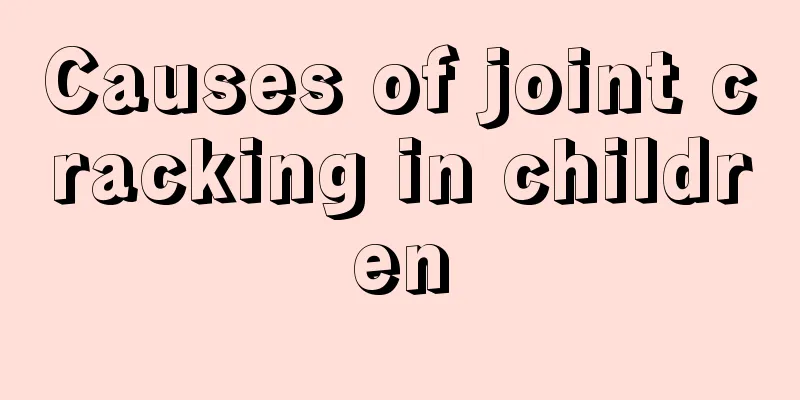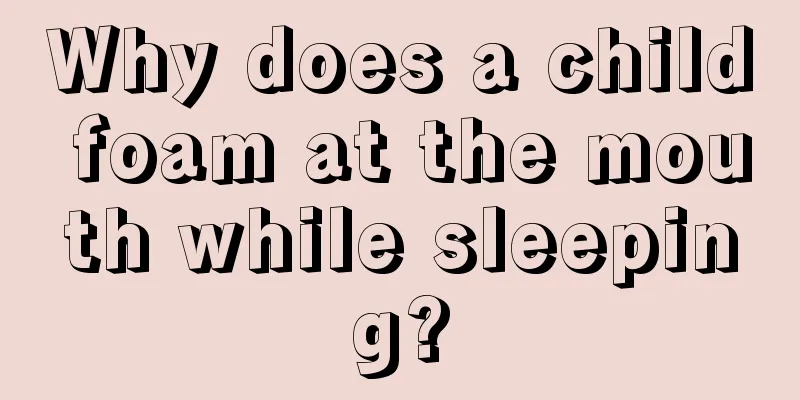Causes of joint cracking in children

|
If we observe the physical development of children carefully, we will find that children will have a symptom of joint noise during their development. This symptom makes many parents very suspicious. They suspect that such a disease will cause some troubles to their children, and they are also worried that such a phenomenon will affect their children's development. Therefore, many parents will take their children to the hospital for examination when their children's joints make noises. So what is the reason for the noises in children's joints? The crackling of a baby's bones is a normal physiological phenomenon. In most cases, the crackling of a baby's bones is just a normal physiological phenomenon. In this case, parents do not need to worry too much. The crackling of the baby's bones is a normal physiological phenomenon because the baby's development is not yet complete, especially the bones throughout the body, which need more nutrition to slowly develop and become a healthy adult in the future. Therefore, from the time a baby is born to the age of seventeen or eighteen, the baby's bones are actually still developing. Therefore, at this time, the cracking of the baby's bones is most likely just a normal physiological phenomenon. So, how do the baby's bones make noises? Because the baby's bones are not fully developed, the ligaments and joint sockets on the baby's bones are not fully developed, and the gaps between them are relatively large. Once the feet and hands are not supported, the bones will make noises due to pulling. If you still can’t understand, think about the past. You can understand this by pulling your hand joints and hearing a sound. In most cases, the crackling of the baby's bones is just a normal phenomenon. Generally speaking, if there is only a clicking sound without any redness or swelling on the surface, or pain, and no movement disorder, it is physiological clicking and does not require special treatment, nor is there any need to be overly anxious about it. When the joints move, friction and sound will always occur between the articular surfaces, between the cartilage pads and the articular surfaces, between the tendons and the joint capsules, etc. In most people, this sound is not obvious, but in some people it is clearer. Especially for those who sit for a long time, less lubricating fluid is produced between the joints, which increases the friction loss of the joints and makes it more likely to hear the popping sound. When accompanied by pain or limited joint movement, you need to go to the hospital to determine whether the joint is dislocated or damaged. However, during the baby's development stage, if the baby's bones keep making noises, it means that the baby should supplement more calcium. Exercise more and get some sun exposure to help your baby's bones develop more fully. Therefore, if the baby's bones make noises, you should neither worry too much nor completely regard it as a normal physiological phenomenon and ignore the development of the baby's bones. The joints can make sounds, which may seem strange at first. However, from a physics point of view, the movements of the joints are nothing more than sliding (such as the initial bending of the knee), rolling, grinding (rotation), etc. These are all based on mechanical principles and will naturally produce sounds due to friction and vibration. It is only because the joint cavity is perfectly closed and the synovial fluid effectively lubricates the joints that the sound is so small that it cannot be heard. These noises are not enough to cause cartilage damage (less than 15% of the energy that can damage cartilage), so there is no need to worry about them. The sound may be made by the knee, ankle or back joints. It may also be that the taut tendons move slightly and then bounce back to their original position when the joints move; or there may be greater friction with the joint protrusions, causing the sound. If it is not accompanied by redness, swelling, heat or pain, it should generally be no problem. In life, we must carefully observe the symptoms of children to see if they have other symptoms while their joints are making noises, such as joint pain, or redness and swelling of the joints. If such phenomena occur in children, we must take the children to the hospital for corresponding examinations. Once we know the cause, we must give the children symptomatic treatment in time. If the symptoms of children's joints making noises are normal, don't worry. |
<<: What is the situation when the baby has red spots on his back like prickly heat?
>>: What are the nutritious foods for young children?
Recommend
What should I do if my 10-month-old baby has a fever of 38 degrees?
A ten-month-old baby has a fever of 38 degrees, w...
What to do if children have cold hands and feet
Children's physical condition has always been...
Do children with autism imitate?
More and more people have become aware of autisti...
What to do if your 1-year-old baby has repeated fever and diarrhea
As time goes by, the babies grow up gradually, an...
Two month old baby has not had a bowel movement for 5 days but farts frequently
Babies in their early childhood are physically fr...
The child twitches when excited
When children are young, they often suffer from s...
Is the child sweating because he is scared?
Sweating is a normal phenomenon in daily life, bu...
How to reshape canine teeth? Three things you need to know
Since canine teeth play an important role in the ...
Detailed explanation of the symptoms of malnutrition in children
Infantile malnutrition can cause children to show...
What are the pros and cons of sucking pacifiers for children
In fact, many parents nowadays are always worried...
How to treat children with Yin deficiency and hyperactivity of fire
Nowadays, many parents like to give their childre...
What are some ways for children to grow taller quickly?
I believe that everyone agrees with this truth in...
Goose bumps on the child
Children may have symptoms similar to goose bumps...
Acute pharyngitis in children
Acute pharyngitis in children is a relatively com...
What is the cause of moles on the baby's body?
Every parent hopes that their baby will have smoo...









